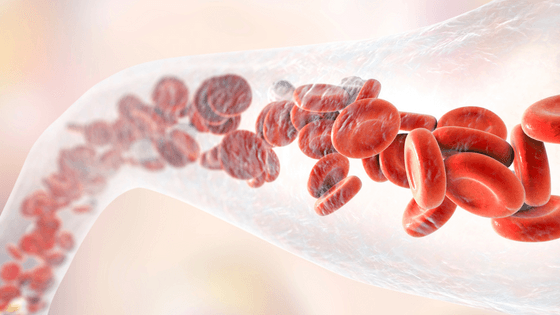10 Side Effects of Chicory: The Surprising Facts You Need

Last Updated on May 22, 2024 by Lauretta Iyamu, PharmD
You’ve probably heard about chicory, especially if you’re looking for natural alternatives to improve your health. It’s often praised for its benefits, from being a coffee substitute to a dietary supplement. However, before you add chicory to your daily routine, it’s important to understand its potential side effects.
Ignoring these can lead to uncomfortable or even serious health problems. Learn the side effects of chicory and what you need to know to stay safe while enjoying chicory.
What is chicory?
Chicory (Cichorium intybus) is a versatile plant gaining popularity for its health benefits and culinary uses. It can be found in coffee substitutes or as a source of dietary fiber in various foods.
Originally from Europe, chicory has a long history. The ancient Egyptians used it for its medicinal properties, and it later became a common ingredient in many traditional European dishes.
Chicory contains vitamins and minerals like vitamin K, C, folate, and manganese. It’s also a great source of inulin, a type of prebiotic fiber.
Side Effects of Chicory
Despite its potential health benefits, chicory consumption has several undesirable side effects and warnings you must be aware of. The side effects you experience may depend on how you take it.
- Oral
- Inhalation
- Skin contact
Some common side effects of chicory are:
- Digestive issues
- Interaction with medications
- Skin irritations and allergies
- Safety issues during pregnancy and breastfeeding
- Decreased fertility in men
- Interfering with Iron absorption
- Effect on blood sugar level
- Decreased bone density
- Effect on Bile Production
- Effect on blood sugar during or after surgical procedures
#1: May Cause Digestive Issues

Inulin Content: Inulin is a prebiotic fiber found abundantly in chicory roots. While it’s beneficial for gut health, it can cause digestive issues for some people.
Gas and Bloating: Inulin ferments in your gut, increasing gas production and bloating. If you’re new to chicory, start with small amounts to see how your body reacts.
Stomach Cramping: You might experience stomach cramps due to the fermentation process of inulin in your digestive tract. Drinking plenty of water and adjusting your intake can help ease this discomfort.
Diarrhea and Constipation: Inulin helps regulate bowel movements, but too much can cause diarrhea or worsen constipation. Monitor your intake and adjust accordingly to keep your digestive system balanced.
#2: May Interact with Medications

Chicory may interact with certain medications you’re taking, potentially affecting their effectiveness. Before adding chicory to your diet, consult your doctor if you take any medications.
One possible interaction is with medications that are metabolized by the liver, such as statins and blood thinners.
Chicory may enhance the liver’s ability to metabolize these medications, potentially reducing their effectiveness.
Chicory may also interfere with the absorption of certain medications, such as levothyroxine, a thyroid medication.
To avoid any potential interference with absorption, it is recommended that you take levothyroxine at least four hours before or after consuming chicory.
#3: May Cause Allergic Reactions

Chicory belongs to the Asteraceae/Compositae family. You might also react to chicory if you’re allergic to these plants. Examples of plants that belong to this group of the family are.
- Marigold
- Daisies
- Ragweed
- Chrysanthemums
Handling chicory plants can cause skin irritation in some people. If you notice redness, itching, or a rash, it’s best to avoid direct contact.
Some people may experience symptoms like swelling, tingling, and pain in their mouths and throats after consuming chicory. This is known as oral allergy syndrome.
In rare cases, chicory can trigger anaphylaxis, a life-threatening allergic response. Symptoms include hives, throat swelling, difficulty breathing, and chest tightness. Seek immediate medical attention if you experience any of these symptoms.
#4: It may be unsafe During Pregnancy and Breastfeeding

While chicory is generally safe in food amounts, its safety as a medicinal supplement during pregnancy and breastfeeding isn’t well established.
Chicory might stimulate menstruation and could potentially cause miscarriage if consumed in large amounts during pregnancy. It’s best to avoid chicory supplements during this time.
There’s limited research on the safety of chicory during breastfeeding. Until more is known, avoiding chicory supplements during this period is advisable to prevent any potential risks to your baby.
#5: May Decrease Fertility in Men

Long-term use of chicory may also result in decreased male fertility. According to one study, rats fed a chicory-rich diet had lower sperm production and motility than those fed a control diet. However, more research is needed to determine the potential effects of chicory on human fertility.
If you are concerned about your fertility, you should consult a medical professional. They can advise you on supporting fertility, such as maintaining a healthy diet and lifestyle, and help you determine if chicory is right for you.
#6: May Affect Blood Sugar Levels
Chicory may lower blood sugar levels, which can be beneficial for some but problematic for others, especially if you’re on diabetes medications.
Combining chicory with diabetes medications might cause your blood sugar to drop too low, requiring close monitoring. If you have diabetes, consult your doctor before adding chicory to your diet.
#7: May Decrease Bone Density

Long-term use of chicory may result in decreased bone density in postmenopausal women. This is because chicory may interfere with calcium absorption, which is necessary for strong bones.
If you are concerned about decreased bone density, you should consult a healthcare professional. They advise you if chicory is right for you and how to maintain strong bones. For example, getting enough calcium and vitamin D through diet and supplements.
#8: May Interfere With Iron Absorption

Chicory may interfere with iron absorption in the body, especially if consumed in large quantities. Iron is a necessary nutrient for forming red blood cells and transporting oxygen throughout the body.
Suppose you are concerned about your iron intake. In that case, you should consult a healthcare professional to determine whether chicory is appropriate for you and how to get enough iron through diet and supplements.
#9: May Affect Bile Production
Chicory can stimulate bile production, which might be problematic if you have gallstones. Increased bile production can worsen gallstone symptoms or lead to complications.
If you have gallstones, it’s recommended to avoid chicory to prevent potential issues. Always consult with a healthcare provider before making any dietary changes.
#10: May Affect Blood Sugar During or After Surgery

Because of the blood sugar effects of chicory, taking it may interfere with your blood sugar control during and after surgery.
Pre-Surgery Considerations
Chicory might interfere with blood sugar control during and after surgery. It’s recommended to stop taking chicory as a medicinal supplement at least two weeks before any scheduled surgery to avoid complications.
Post-Surgery Recovery
Chicory’s impact on blood sugar levels can complicate recovery after surgery. Discuss any supplements you take with your surgeon to ensure a smooth recovery process.
Wrapping Up
While chicory offers several health benefits, knowing its potential side effects is important. If you have allergies to related plants, digestive sensitivities, are pregnant or breastfeeding or have gallstones or diabetes, exercise caution and consult with a healthcare provider before adding chicory to your diet or supplement regimen.
Understanding these potential side effects lets you decide whether chicory is right for you. Always consult a healthcare professional before significantly changing your diet or supplement intake.
FAQs
What digestive issues can chicory cause?
Due to its high inulin content, chicory can cause gas, bloating, stomach cramps, diarrhea, and constipation. If you’re new to chicory, start with small amounts to see how your body reacts.
How can I identify an allergic reaction to chicory?
Symptoms of an allergic reaction to chicory include skin irritation, oral allergy syndrome (swelling, tingling, and pain in the mouth and throat), and, in severe cases, anaphylaxis (hives, throat swelling, difficulty breathing, and chest tightness). If you experience any of these symptoms, seek medical attention.
Is chicory safe during pregnancy?
Chicory might stimulate uterine contractions and could potentially cause miscarriage if consumed in large amounts during pregnancy. It’s best to avoid chicory supplements during pregnancy and consult with your healthcare provider.
Can chicory affect blood sugar levels?
Yes, chicory may lower blood sugar levels, which can be problematic if you’re on diabetes medications. It’s important to monitor your blood sugar levels closely and, consult your doctor before adding chicory to your diet.
Should I avoid chicory if I have gallstones?
Yes, chicory can stimulate bile production, which might worsen gallstone symptoms or lead to complications. It’s recommended to avoid chicory if you have gallstones and consult with your healthcare provider.
References
- Schmidt BM, Ilic N, Poulev A, and Raskin I. Toxicological evaluation of a chicory root extract. Food Chem Toxicol. 2007;45(7):1131–1139.
- Pirson F, Detry B, and Pilette C. Occupational rhinoconjunctivitis and asthma caused by chicory and oral allergy syndrome associated with bet v 1-related protein. J Investig Allergol Clin Immunol. 2009;19(4):306-310.
- Street RA, Sidana J, and Prinsloo G. Cichorium intybus: Traditional Uses, Phytochemistry, Pharmacology, and Toxicology. Evid Based Complement Alternat Med. 2013;2013:579319.
- The complete german commission e-monographs—American Botanical Council [Internet]. [cited 2023 Jan 5]. Available from: https://www.herbalgram.org/resources/commission-e-monographs/
- Cavin C, Delannoy M, Malnoe A, et al. Inhibition of the expression and activity of cyclooxygenase-2 by chicory extract. Biochem Biophys Res Commun. 2005;327(3):742-749.
- He Y, Guo YJ, and Gao YY. Zhongguo Zhong Yao Za Zhi. 2002;27(3):209–210.
- Bonnema AL, Kolberg LW, Thomas W, and Slavin JL. Gastrointestinal tolerance of chicory inulin products. J Am Diet Assoc. 2010;110(6):865-868. doi:10.1016/j.jada.2010.03.02
Pin it, tweet it, and share it with others. FOLLOW US ON PINTEREST




